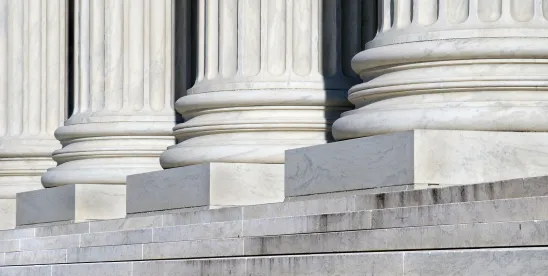This post’s title comes from the 1960s doo-wop hit “Stay,” by Maurice Williams and the Zodiacs. I recognize that most practicing lawyers today are too young to know of this classic.
However, its opening line echoes in yet another action of the U.S. Supreme Court, today’s order in Noem v. Doe, granting a stay (for at least a bit longer) of a district court order that had blocked the deportation of more than a half million immigrants from Cuba, Haiti, Nicaragua and Venezuela.
Those persons were in the United States under parole programs that gave them temporary legal status. Today, the Court is allowing the Department of Homeland Security to deprive those persons of that protection and to subject them to deportation, notwithstanding that ongoing legal proceedings could lead to a restoration of the parole programs at issue.
Two dissenting Justices, Jackson and Sotomayor, did opine, but the Court’s order, as is the case with most “shadow docket” proceedings, contains no explanation of the majority’s reasoning. You will recall that on May 19, the Supreme Court issued a similar order regarding another program, in which the Court ended protection for 350,000 Venezuelans.
Citing that order, which by its own terms could evaporate pending future proceedings, is not intended to fuel the debate over the Trump administration’s immigration policy. Instead, it is to call attention to the dissenting opinion issued by Justice Jackson, who writes as follows:
When this Court evaluates whether or not to stay a lower court’s order, the factors we apply are well established: The applicant must show a fair prospect that we will grant certiorari and reverse, that the merits favor them, that irreparable harm will befall them should we deny the stay, and, in close cases, that the equities and public interest are on their side.
We don’t know the extent to which the Court’s majority actually considered each of these well-established criteria for a stay, but we do know that the government’s application did not produce any evidence of the important element of irreparable harm.
Justice Jackson claims, therefore, that “[t]he Court has plainly botched this assessment today.” Whether or not one agrees with that assessment, it appears that the Court is leaning toward an expansive view of presidential foreign affairs power. Future litigation will provide a definitive answer.
At present, more than three-quarters of a million South and Central American would-be refugees are vulnerable to deportation. And as any frequent reader of this blog—or of the news—should know, questions of administrative law are coming to dominate the Supreme Court’s docket.




 />i
/>i
